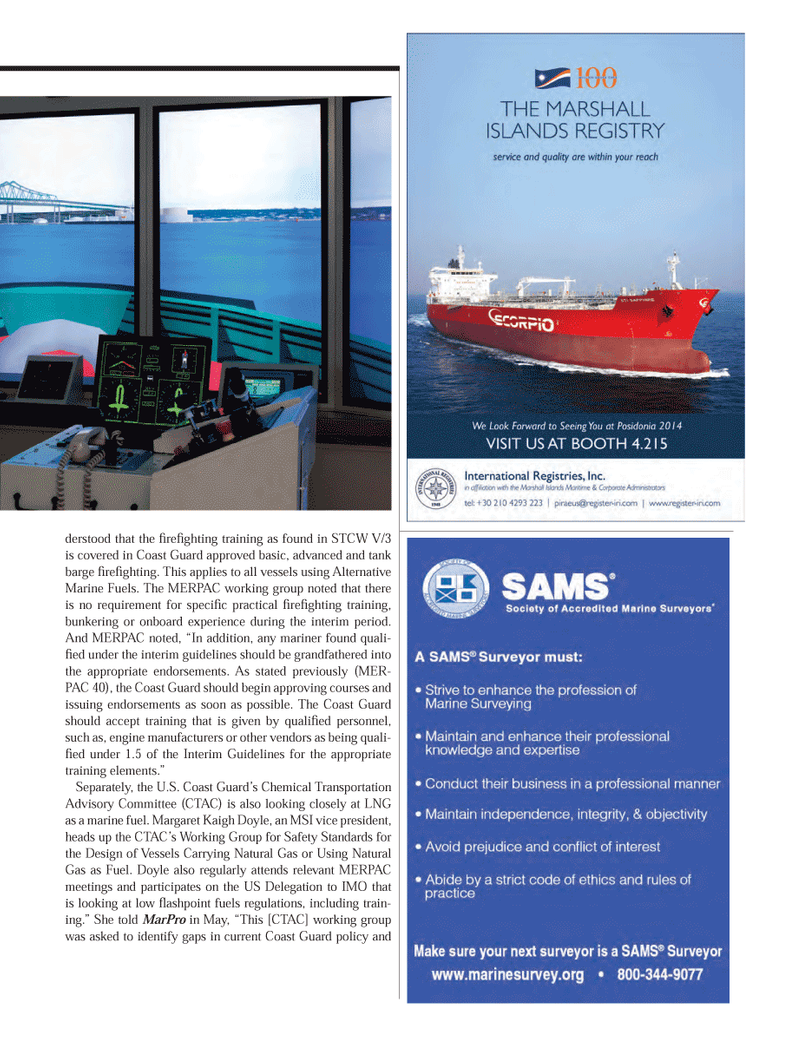
Page 33: of Maritime Logistics Professional Magazine (Q2 2014)
Maritime Risk & Shipping Finance
Read this page in Pdf, Flash or Html5 edition of Q2 2014 Maritime Logistics Professional Magazine
derstood that the fi refi ghting training as found in STCW V/3 is covered in Coast Guard approved basic, advanced and tank barge fi refi ghting. This applies to all vessels using Alternative
Marine Fuels. The MERPAC working group noted that there is no requirement for specifi c practical fi refi ghting training, bunkering or onboard experience during the interim period.
And MERPAC noted, “In addition, any mariner found quali- fi ed under the interim guidelines should be grandfathered into the appropriate endorsements. As stated previously (MER-
PAC 40), the Coast Guard should begin approving courses and issuing endorsements as soon as possible. The Coast Guard should accept training that is given by qualifi ed personnel, such as, engine manufacturers or other vendors as being quali- fi ed under 1.5 of the Interim Guidelines for the appropriate training elements.”
Separately, the U.S. Coast Guard’s Chemical Transportation
Advisory Committee (CTAC) is also looking closely at LNG as a marine fuel. Margaret Kaigh Doyle, an MSI vice president, heads up the CTAC’s Working Group for Safety Standards for the Design of Vessels Carrying Natural Gas or Using Natural
Gas as Fuel. Doyle also regularly attends relevant MERPAC meetings and participates on the US Delegation to IMO that is looking at low fl ashpoint fuels regulations, including train- ing.” She told MarPro in May, “This [CTAC] working group was asked to identify gaps in current Coast Guard policy and 18-33 Q2 MP2014.indd 33 5/16/2014 2:54:13 PM

 32
32

 34
34
